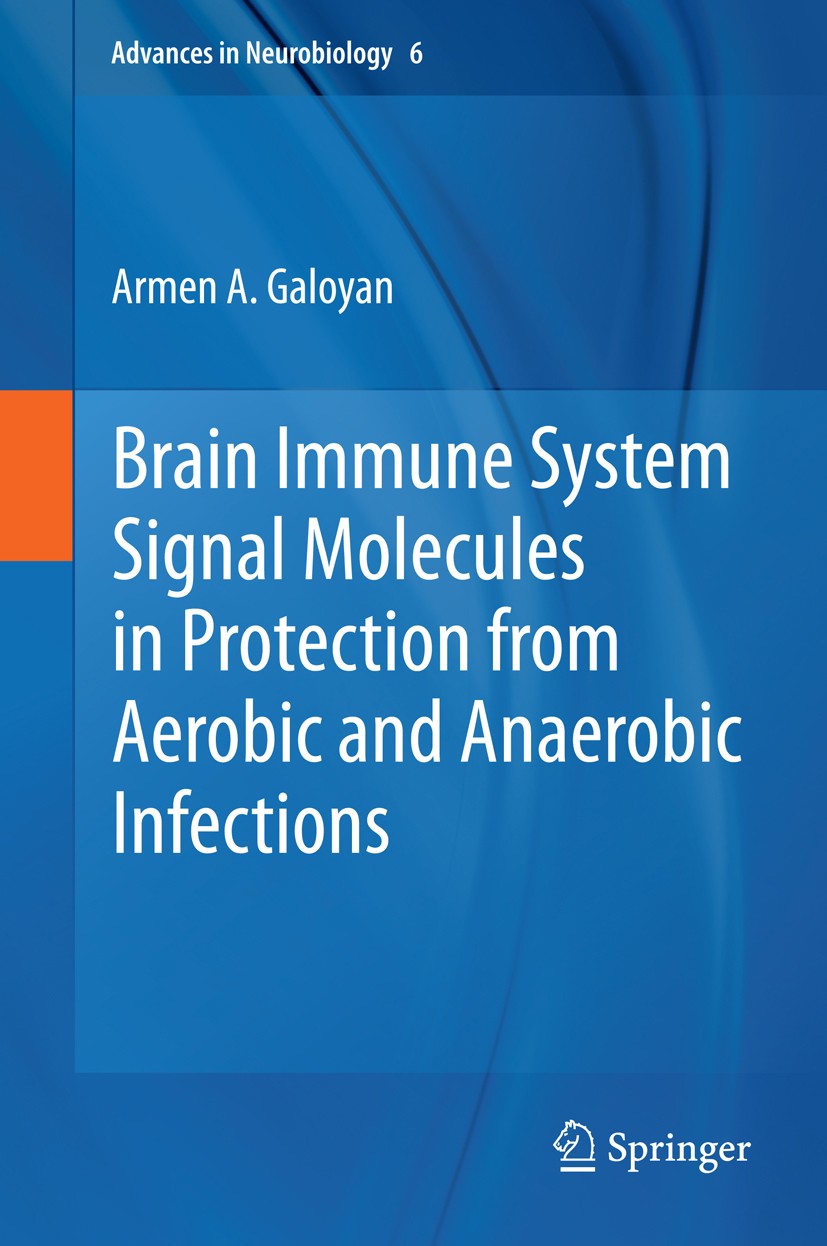| 期刊全稱 | Brain Immune System Signal Molecules in Protection from Aerobic and Anaerobic Infections | | 影響因子2023 | Armen A. Galoyan | | 視頻video | http://file.papertrans.cn/191/190188/190188.mp4 | | 發(fā)行地址 | Written by a pioneer of the specialized field of neuroimmunology.Presents a full overview of the neuroimmune system.Useful to academics, researchers, and PhD students in neuroscience and neurobiology. | | 學科分類 | Advances in Neurobiology | | 圖書封面 |  | | 影響因子 | .Proline-rich polypeptides - in particular (PRP-1) galarmin and its structural analogues – are, when isolated from the neurosecretory granules of neurohypophysis of humans and animals, a new type of hypothalamic peptides. They work against aerobic, anaerobic, gram-positive, and gram-negative microorganisms in vivo, and do not have etiotropic properties. They are unique and capable substitutes to antibiotics, and, moreover, may be effective against strains, such as MRSA, that develop resistance to antibiotics. Galarmin, a component of the brain neuroendocrine system produced by the neurosecretory cells of hypothalamus, possesses? immunomodulative, neuroprotective, antioxidant, antitumorigenic and hematopoietic properties. Moreover, galarmin and its structural analogues are powerful anti-inflammatory? compounds.? .In addition to presenting a full overview of the neuroimmune system, it emphasizes the antibacterial, neuroprotective, and neuroregenerative properties of proline-rich polypeptides.? It investigates the mechanism of galarmin’s action during different infectious processes, where it targets such dangerous pathogens as ?Bacillus anthracis, Clostridium perfringens, Mycobacteriu | | Pindex | Book 2012 |
The information of publication is updating

|
|
 |Archiver|手機版|小黑屋|
派博傳思國際
( 京公網(wǎng)安備110108008328)
GMT+8, 2025-10-13 00:22
|Archiver|手機版|小黑屋|
派博傳思國際
( 京公網(wǎng)安備110108008328)
GMT+8, 2025-10-13 00:22


